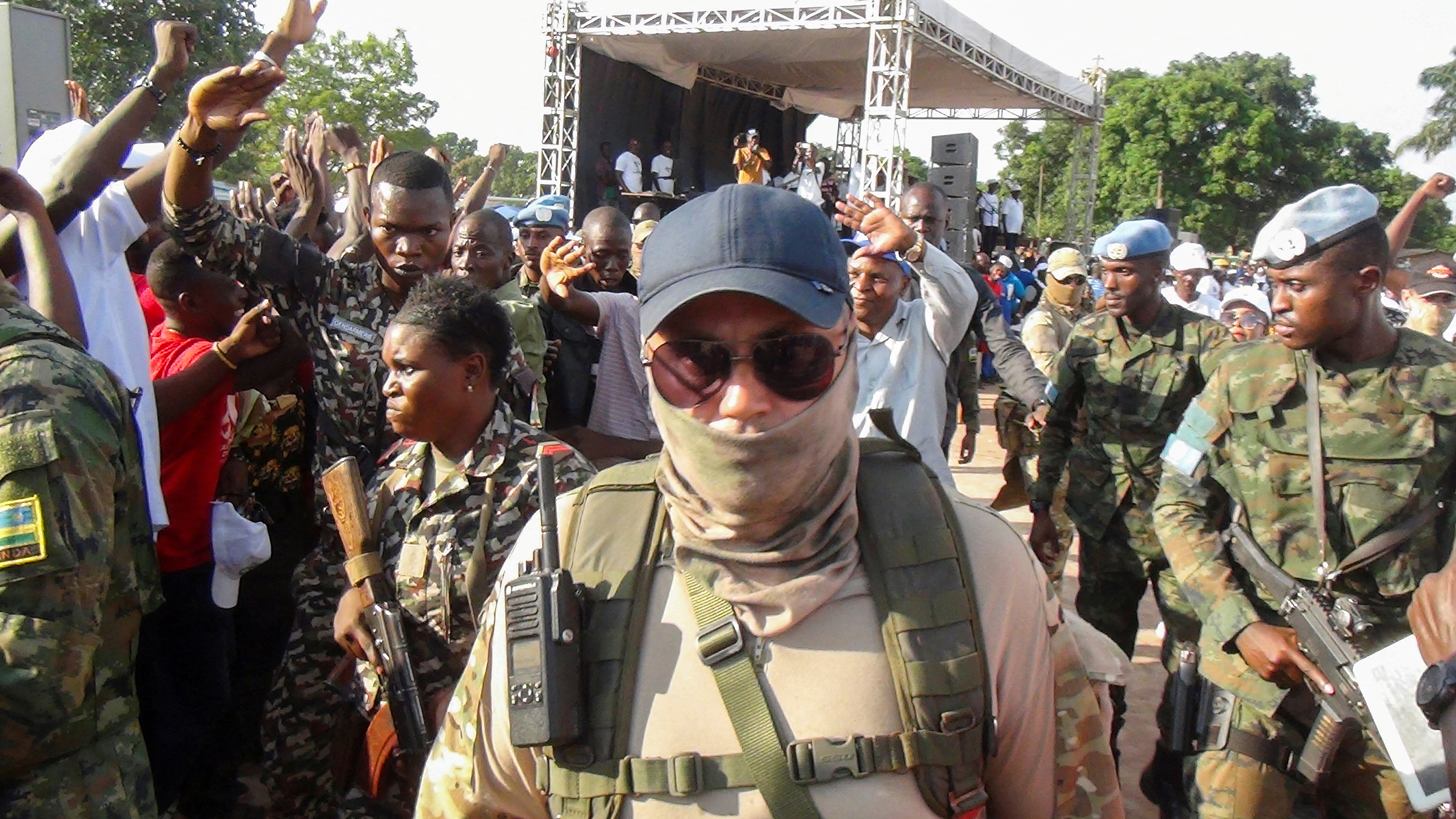A month after Yevgeny Prigozhin’s dramatic short-lived rebellion against Russian President Vladimir Putin, the mercenary leader was back to business as usual. After a military coup in Niger, Prigozhin pitched his paramilitary Wagner Group as the solution to the West African nation's security crisis. "A thousand Wagner fighters are able to restore order and destroy terrorists," Prigozhin said on Telegram July 27, "preventing them from harming the civilian population."
The message was a clear sign that Wagner is likely to remain a global force in spite of its rift with the Russian state and its leader's alleged exile to Belarus. A new report exclusively shared with TIME by the Armed Conflict Location & Event Data Project (ACLED), a conflict-monitoring group that tracks political violence worldwide, sheds new light on just how deeply Wagner is embedded across Central and West Africa, where it is training local militias and propping up fragile governments allied with Russia in exchange for lucrative mineral rights.
The new analysis of Wagner’s recent activities, which focuses on its presence in the Central African Republic (CAR) and Mali as well as Ukraine, illustrates how the group has often targeted civilians as part of its partnership with government forces, including those perceived to have connections to armed insurgencies. It also shows that Wagner mercenaries have frequently targeted civilians, including miners, as part of their own efforts to maintain access to gold, diamond, and other natural resource sites. According to ACLED data, all major conflict zones the group operates in have suffered a recent rise in violence. In Mali alone, ACLED recorded 298 instances of political violence involving Wagner between Dec. 2021 and June 2023, including civilian targeting, mass killings, abductions, cattle theft, extortion, and looting.
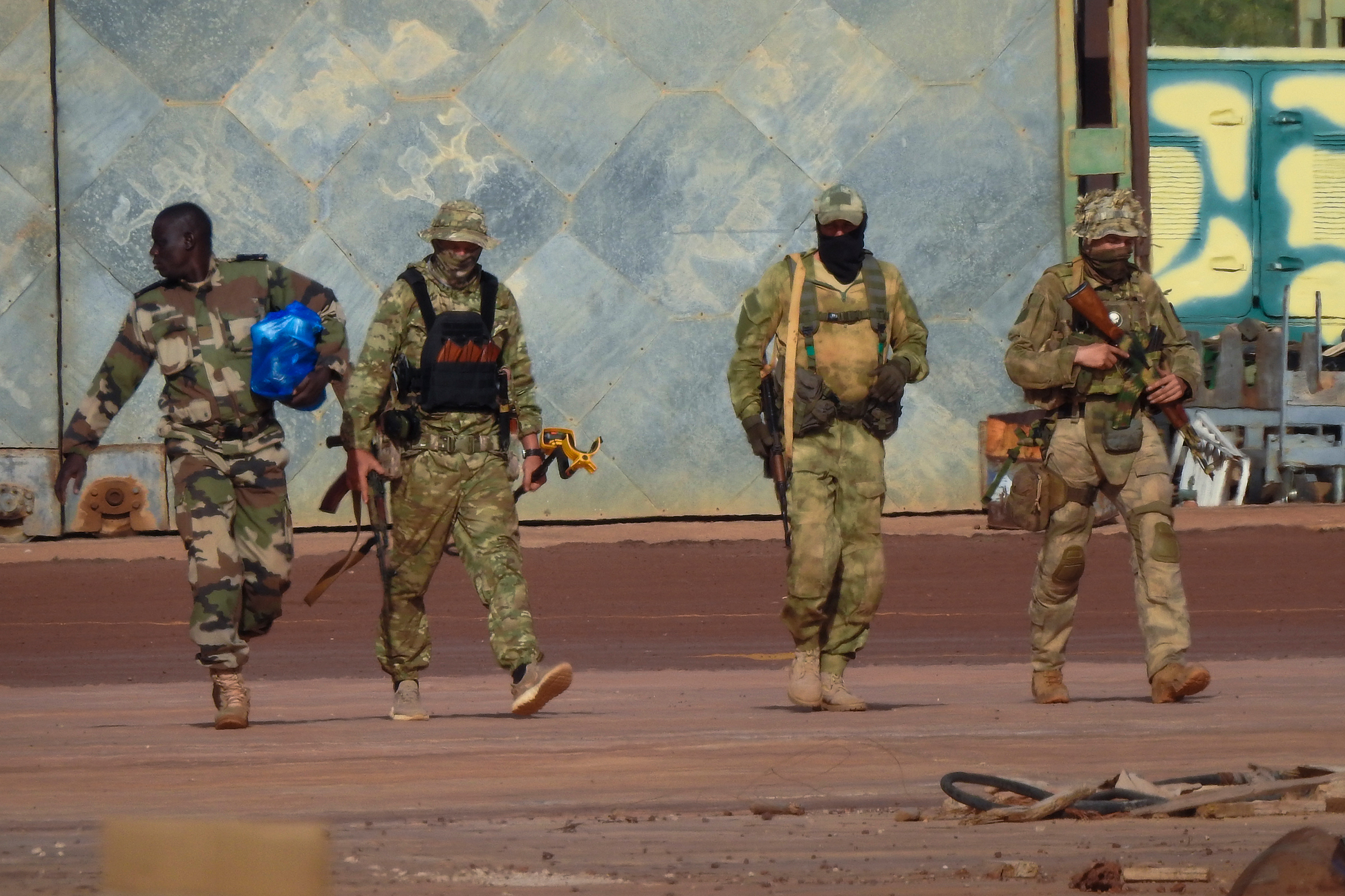
“The activities in Mali have dispelled the rumors that Wagner was pretty much packing up or diverting resources to Ukraine,” says Héni Nsaibia, an ACLED senior researcher. “We have seen that Wagner activities have only increased significantly since the beginning of the year, with several spikes of violence.”
Read More: How Wagner’s Prigozhin Used Telegram to Challenge Putin.
The report also outlines the economic motivations underlying the group’s activities, especially in Africa, where it has traded its military support for lucrative contracts. The overlap of Wagner's financial and political interests in Africa is likely to ensure the mercenary organization maintains a disruptive global presence, even with its leader's future murky in the wake of an extraordinary mutiny in June that saw Wagner fighters come within 120 miles of Moscow before turning back. “Even if Wagner was to withdraw from the Central African Republic tomorrow,” says Ladd Serwat, an Africa regional specialist at ACLED, “we could have these ongoing threats to civilians because of the way that Wagner has equipped and trained these armed groups.”
The report's release comes as Prigozhin has re-emerged weeks after the rebellion, vowing to increase Wagner’s role in Africa, where the group is estimated to have more than 5,000 fighters. Prigozhin was recently spotted at a summit in St. Petersburg, where Putin hosted several African leaders, emphasizing Wagner's central role in Russia's plans to expand its influence on the continent. Prigozhin, who was seen shaking hands and posing for photos with African officials, told African media that a new rotation of Wagner forces had arrived in CAR on July 30 ahead of a constitutional referendum that would allow its president to seek a third term. "We control the territory of the republic," Prigozhin declared.
Until last year, the Wagner Group’s leadership and activities remained somewhat shrouded in mystery. But in Sept. 2022, Prigozhin stepped out of the shadows, building a public platform on Russian social media and Telegram, opening a flashy new headquarters for the group in St. Petersburg, and trumpeting Wagner’s role in conflict zones. The public victory lap coincided with Wagner's emergence as a crucial fighting force in Ukraine, where its mercenaries helped lead Russia's capture of the eastern city of Bakhmut.
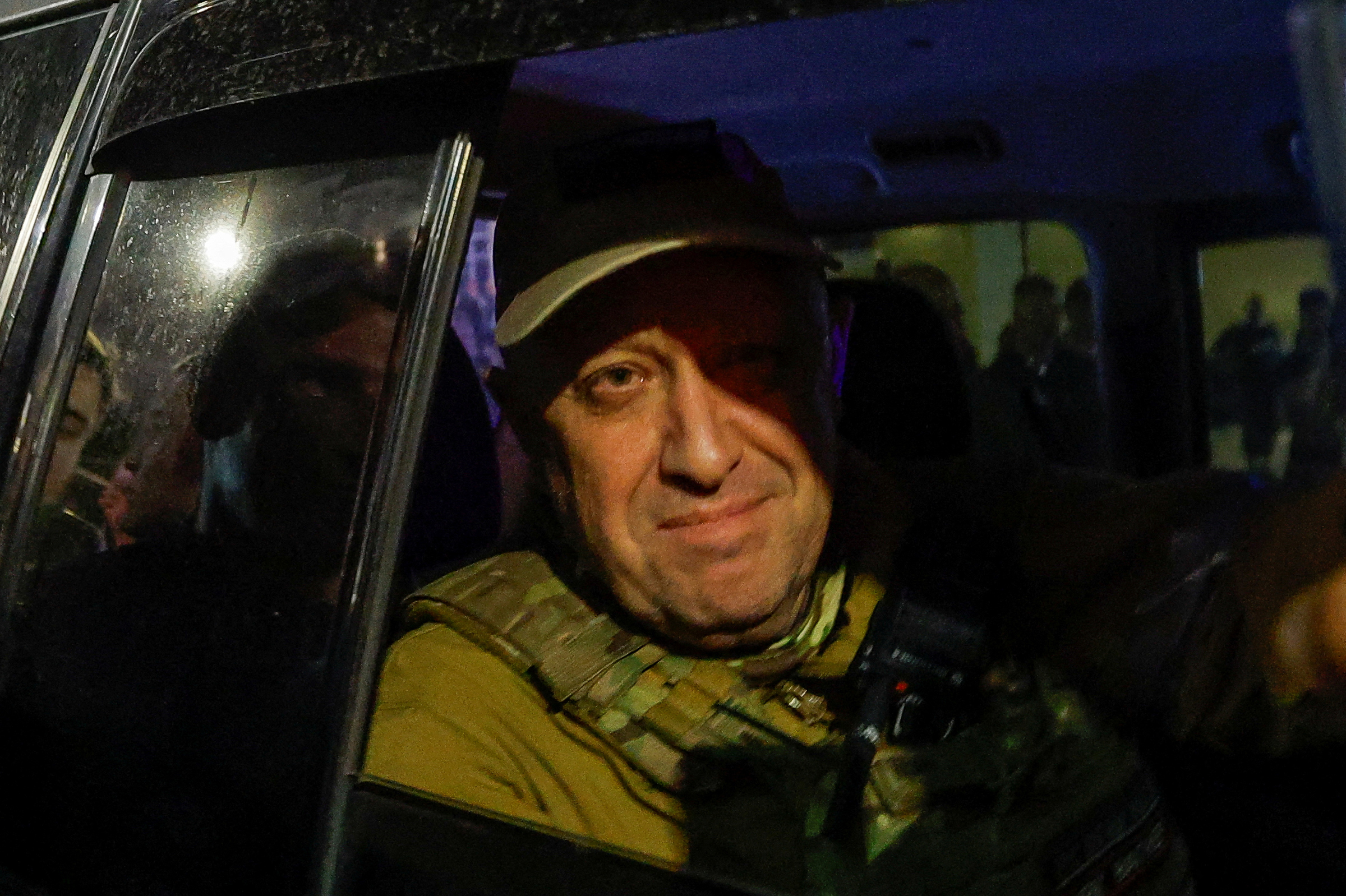
Wagner has been expanding its global reach for a decade, operating from the Middle East to Latin America. But its sprawling network of private military contractors and shell companies serving the Kremlin’s interests has its deepest foothold in Africa. ACLED’s new report reveals how Wagner has embedded itself in the Central African Republic, a country that has seen six coups since 1960. Wagner arrived there in 2018, when Russia signed contracts with CAR's government, exchanging lucrative mining concessions for military support and weapons. As Wagner extended its influence in the country, companies linked to Prigozhin secured several independent gold and diamond mining contracts. “Today, an independent collector cannot work if he does not work with Wagner,” one person involved in the diamond industry noted, according to ACLED.
In exchange, Wagner mercenaries trained local fighters, who became known as “Black Russians.” They primarily targeted civilians rather than fighting against rebel groups, according to ACLED. By 2020, Wagner fighters had started taking on a direct combat role, countering rebels seeking to overthrow the government of CAR President Faustin-Archange Touadéra, whose rivals have charged that he wants to make himself “president for life” under the protection of the Wagner army.
The number of Wagner fighters in the country is estimated to have reached 2,600, according to ACLED, turning the group into “one of the dominant agents of political violence in CAR.” Between Dec. 2020 and May 2023, 37% of all political violence in CAR involved the Wagner Group, according to data shared with TIME. Wagner has “engaged in explosive violence more than any other actor in CAR, using helicopters to drop explosives against a wide range of targets, including [rebel] bases, mining sites, and civilian settlements,” according to the report.
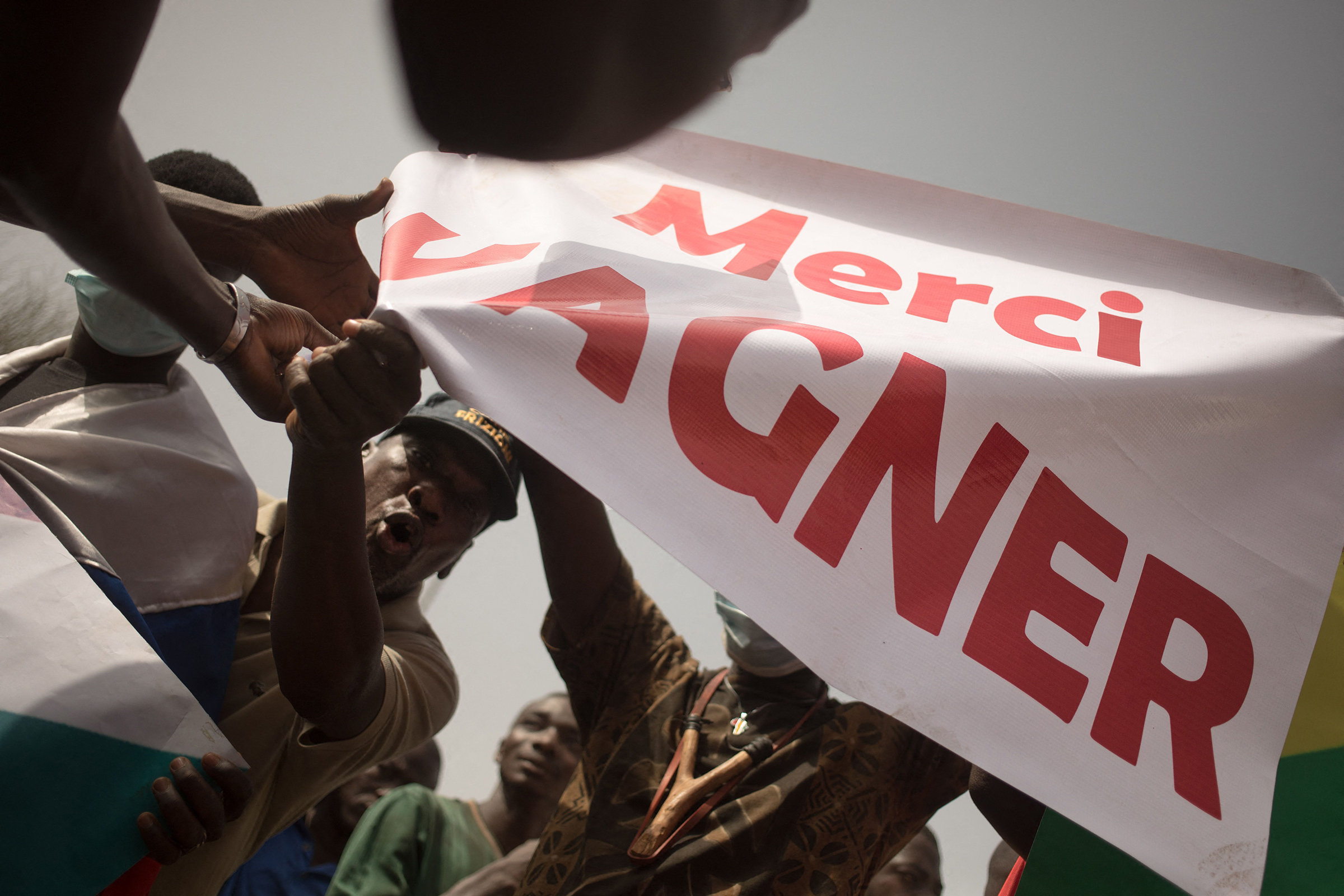
Since Dec. 2020, ACLED has recorded at least 17 battles over mining sites in the CAR, with Wagner involved in 70% of events involving multiple civilian casualties. In one incident, in Jan. 2022, Wagner mercenaries allegedly killed dozens of civilians. “Even if Wagner was to completely withdraw” from CAR, Serwat says, “I think we probably expect Wagner or other Prigozhin-linked companies to continue guarding those mining sites and engaging in violence in those areas.”
Wagner also has a significant footprint in Mali, where it has operated since late 2021, aiding the efforts of the country's ruling military junta. (While Mali’s government has not acknowledged the presence of Wagner mercenaries, both Putin and Russian Foreign Minister Sergey Lavrov have done so publicly.) U.S. intelligence documents leaked on Discord earlier this year indicated that there were more than 1,600 Wagner personnel stationed in Mali. According to the U.S. State Department, Mali's transitional government is paying Wagner an alleged $10 million monthly fee for its services—a sum that would amount to twice the annual budget of Mali's Ministry of Justice.
Of the hundreds of episodes of political violence ACLED has chronicled involving Wagner's operations in the country, the majority involve the targeting of civilians. The report cites Wagner for using tactics such as ejecting prisoners from aircraft and booby-trapping bodies. According to a UN report published in May, Malian troops along with “armed white men” who spoke an unknown language massacred more than 500 people in the village of Moura in March 2022—almost all of them civilians. The mercenary group has been operating in a “climate of terror and complete impunity,” according to experts cited in that UN report.
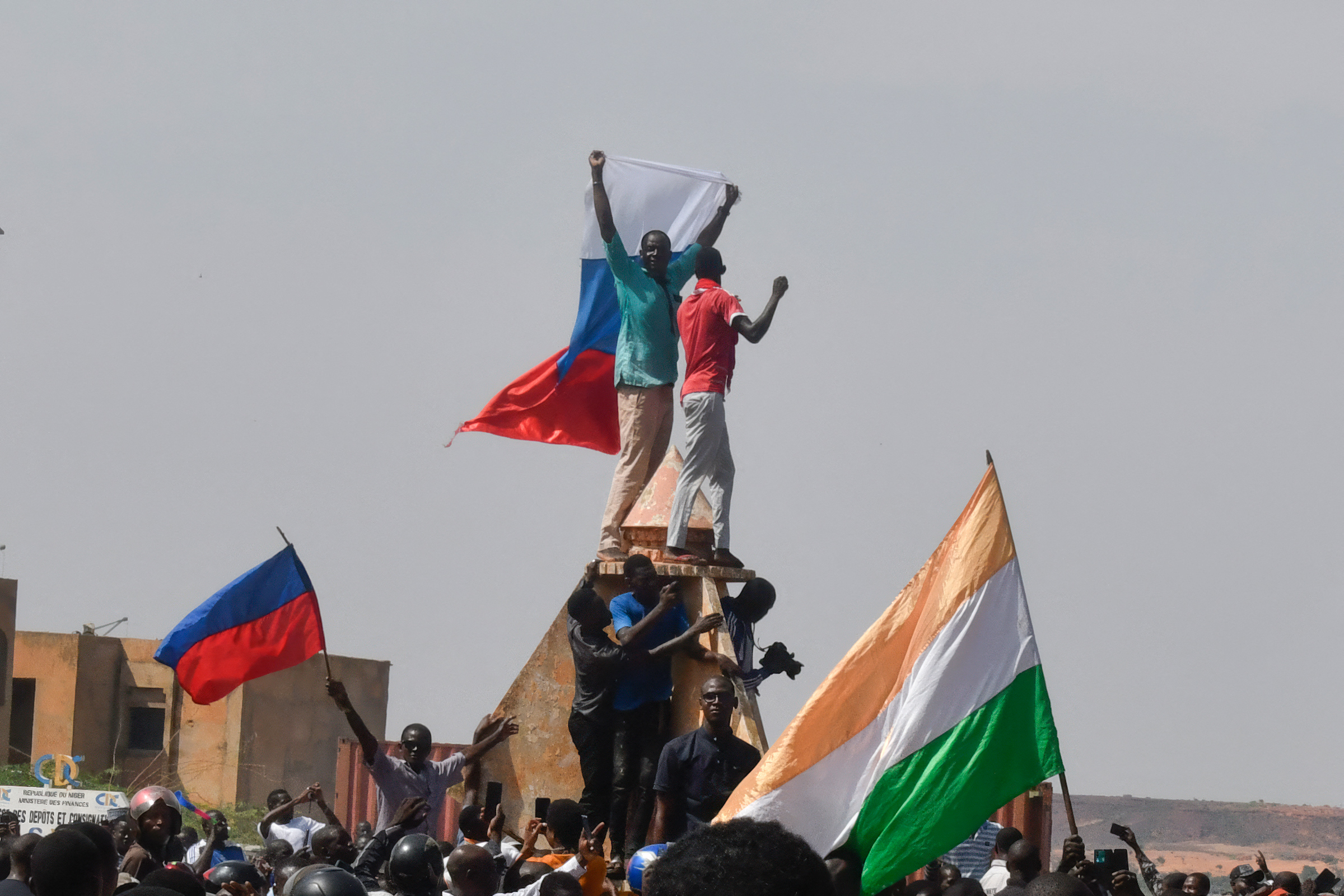
The report raises concerns that these operations will destabilize neighboring countries as well. Leaked military documents posted on Discord earlier this year by a member of the Massachusetts Air National Guard showed that the U.S. intelligence community shares these concerns. They detailed how the Wagner group sought to recruit Chadian rebels and set up a training site across the border in the CAR to train 300 fighters as part of an “evolving plot to topple the Chadian government.” According to ACLED data, several cross-border attacks have already been carried out this year.
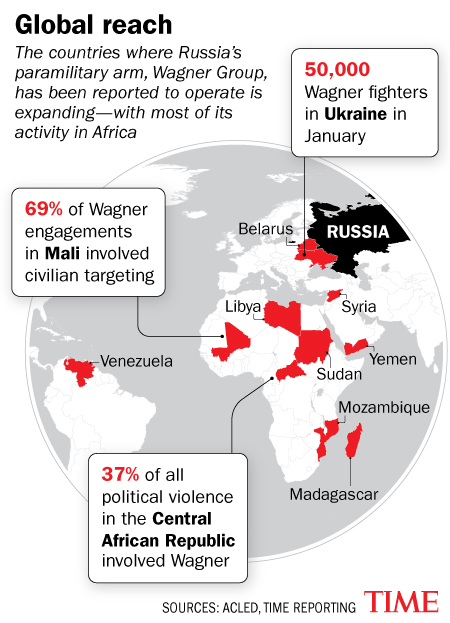
It's not clear how the fallout from Prigozhin's mutiny may affect Wagner's operations in the future. But the early indications are that it is unlikely to curb the group's reach. In a voice message posted on Telegram July 31, Prigozhin said that while Wagner had paused recruiting, it would remain active in Africa. His comments echoed those of Lavrov, who told Russian state media in late June that in Africa the group's "work, of course, will continue."
The fate of its leader is more uncertain. Prigozhin was reportedly exiled to Belarus, though it's not clear whether that has happened. If Prigozhin remains Wagner’s leader but the group loses Russian government support, it may drive Wagner to rely more heavily on generating revenue from its operations in Africa, both through contracts for natural resources and looting of local populations, according to ACLED.
Analysts also note that it could force them to seek new partnerships with other countries it sees as potential clients. Instability in Benin, Tongo and Burkina Faso make them particularly vulnerable targets—ones potentially. willing to trade their natural resources for Wagner’s military support.
"If it is cut off from the Russian state, Wagner could end up looking even more to different parts of Africa in order to generate revenue," says Serwat. "This would certainly be a concern not just in terms of natural resources but because of the looting and pillaging of civilian populations."
More Must-Reads from TIME
- Why Biden Dropped Out
- Ukraine’s Plan to Survive Trump
- The Rise of a New Kind of Parenting Guru
- The Chaos and Commotion of the RNC in Photos
- Why We All Have a Stake in Twisters’ Success
- 8 Eating Habits That Actually Improve Your Sleep
- Welcome to the Noah Lyles Olympics
- Get Our Paris Olympics Newsletter in Your Inbox
Write to Vera Bergengruen at vera.bergengruen@time.com
